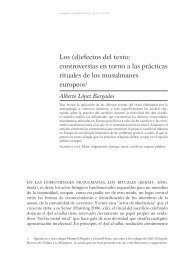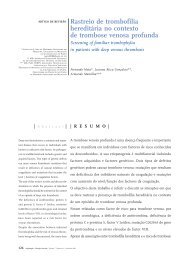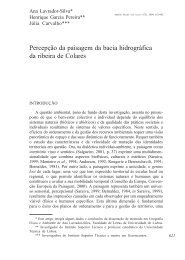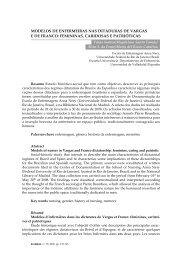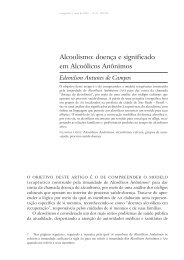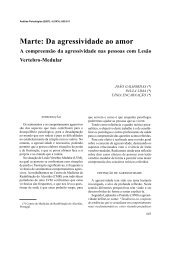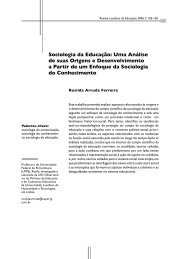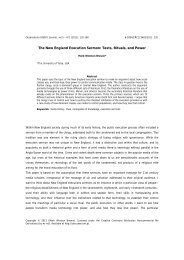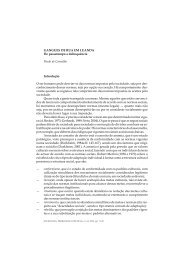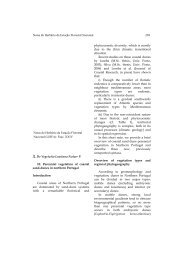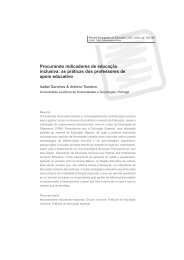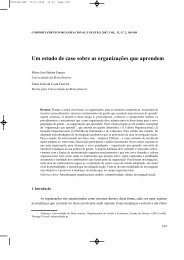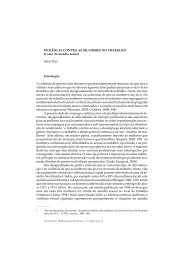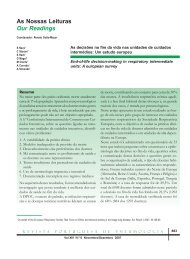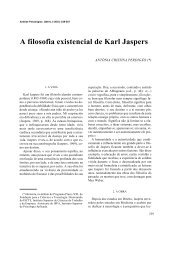Alfabetização e escola em Portugal no século XX: Censos ...
Alfabetização e escola em Portugal no século XX: Censos ...
Alfabetização e escola em Portugal no século XX: Censos ...
You also want an ePaper? Increase the reach of your titles
YUMPU automatically turns print PDFs into web optimized ePapers that Google loves.
tização e de <strong>escola</strong>rização portuguesas com as mesmas<br />
taxas referentes a outras sociedades europeias e de seguida<br />
analisamos e discutimos os resultados fornecidos<br />
pelos <strong>Censos</strong> Populacionais compreendidos entre<br />
os a<strong>no</strong>s de 1900 e 1960, concluindo que até à primeira<br />
metade deste <strong>século</strong> os portugueses acederam ao mundo<br />
das letras de uma forma autó<strong>no</strong>ma e informal, negligenciando<br />
<strong>em</strong> parte as formas de <strong>escola</strong>rização estandardizadas.<br />
Na segunda parte deste artigo, introduzimos um<br />
estudo de caso referente a uma freguesia rural de Ferreira<br />
do Zêzere, analisando os percursos de alfabetização<br />
e de <strong>escola</strong>rização <strong>em</strong> três gerações nascidas entre<br />
1888 e 1969, e relacionando tais percursos com o<br />
género, estatuto social e formas de mobilidade social.<br />
Procurámos também fixar e comparar as imagens<br />
sociais relativas à <strong>escola</strong> e à sua relação com o trabalho,<br />
t<strong>em</strong>pos livres e rotinas do quotidia<strong>no</strong> <strong>em</strong> duas gerações<br />
(«avós» e «netos»), tentando d<strong>em</strong>onstrar que<br />
questões relativas à evolução dos processos de<br />
alfabetização e de <strong>escola</strong>rização têm que necessariamente<br />
ser relacionadas com transformações sociais e<br />
económicas mais gerais e complexas.<br />
Palavras-chave: História da educação, <strong>escola</strong>rização,<br />
alfabetização.<br />
194<br />
ABSTRACT<br />
The purpose of this paper is to understand and ana-<br />
lyse the ways literacy and schooling were impl<strong>em</strong>ented<br />
in the Portuguese society during the twentieth century.<br />
In the first part of it, we compared the Portuguese<br />
literacy and schooling rates whit other European countries<br />
and societies, and then analysed and discussed the<br />
data given by the Portuguese population Census from<br />
1900 to 1960, concluding that until the fourth decade<br />
of this Century an important part of Portuguese people<br />
became literate auto<strong>no</strong>mously, i.e. <strong>no</strong>t using compulsory<br />
school in a standard way.<br />
In the second part of this paper we studied population<br />
samples of three generations of a rural village of<br />
<strong>Portugal</strong>, the freguesia do Beco in Ferreira do Zêzere,<br />
that were born between 1888 and 1969, reconstructing<br />
the evolution of their literacy and schooling levels and<br />
relating it with professional mobility, gender and<br />
social status.<br />
We also tried to establish the social images of<br />
literacy, school and their relationship with child`s<br />
work, leisure and daily routines in two generations<br />
(grand parents and grand sons) and analyse the<br />
changes that occurred in this period of time, showing<br />
that the process of schooling and literacy has to be<br />
understood under a broader social and historic perspective<br />
in which literacy rates and their evolution are<br />
only one of the aspects to be considered.<br />
Key words: History of education, literacy, schooling.



